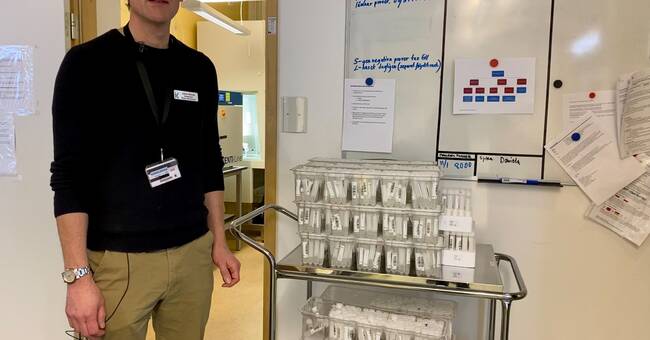The spread of infection is breaking records and more people than ever want to test for covid-19 right now.
At Karolinska University Laboratory in Solna, you get almost 13,000 covid tests per day.
The staff works in three shifts and the analyzes are ongoing day and night, seven days a week.
In a corridor stands a trolley with hundreds of test tubes stacked on top of each other.
- These are all positive test results that have been analyzed from the last 24 hours, says Johan Aarum, unit manager for clinical microbiology at Karolinska University Laboratory in Solna.
Urges some not to test themselves
Many regions have problems with testing right now.
People with symptoms are forced to wait for several days before they are given the opportunity to take a test.
Several regions have paused testing or introduced restrictions on the number of tests that can be performed each day.
In several regions, the recommendations about who needs to be tested are now changing.
Region Västerbotten urges people who live with a covids infected person not to get tested.
If someone has taken a so-called rapid test, or antigen test, which has become positive, you are advised not to do a pcr test that needs to be analyzed in the laboratory.
The Jönköping and Kronoberg regions also urge asymptomatic people who have been in contact with a covid-infected person to refrain from testing.
Samples are flown abroad for analysis
The analyzes of covid tests are performed at several major hospital laboratories around Sweden.
But the regions have also procured private laboratories such as ABC-labs, Unilabs and Eurofins.
The pressure has been so great this week that thousands of covid samples from Västra Götaland have been flown to Germany for analysis.
One of the biggest problems for the lab is getting staff.
There are many who are ill or have to stay at home with sick children.
At Karolinska University Laboratory in Solna, they have borrowed staff to cover staffing.
- We bring in extra staff from other parts of the laboratory and from Karolinska Institutet, a lot of students.
Now we work around the clock, seven days a week.
We did not do that earlier this winter, says Johan Aarum.

